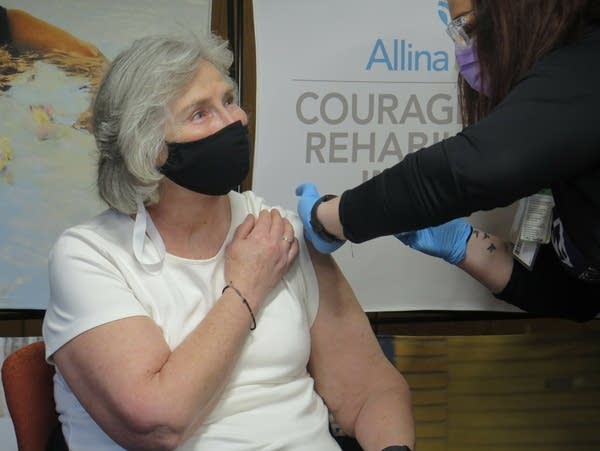April 7 update on COVID-19 in MN: Cases, ICU needs trend higher; vaccine supply up

Minnesota Health Commissioner Jan Malcolm receives a dose of the Johnson & Johnson COVID-19 vaccine from Allina Health clinic nurse Rachel Slama last month.
Peter Cox | MPR News file
Go Deeper.
Create an account or log in to save stories.
Like this?
Thanks for liking this story! We have added it to a list of your favorite stories.


